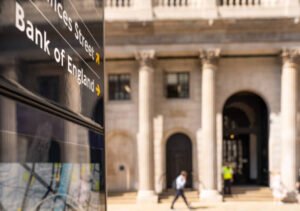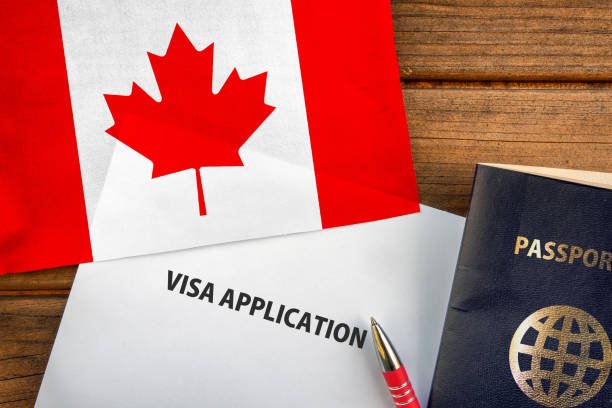Advertisement
When new immigrants arrive in the United Kingdom, one of the first priorities is the establishment of a functional financial system that ensures smooth living and integration into the society. A bank account is considered essential for daily life in the UK, as it is used for salary payments, rent transfers, utility bills, and even online purchases. Without a UK bank account, immigrants often face challenges such as difficulty receiving payments, higher transaction fees on international cards, and limited access to financial services.
The purpose of my guide is to provide new immigrants with a clear understanding of how a bank account can be opened in the UK, the requirements involved, and the best strategies to overcome common challenges. By the end of this guide, new immigrants will be equipped with the knowledge needed to successfully establish banking relationships in the UK.
Advertisement
Why a UK Bank Account is Important for Immigrants
Safe Storage of Money
A bank account provides a secure place for money to be stored. Carrying large amounts of cash is considered risky, and without a bank account, immigrants are often forced to depend on unsafe alternatives.
Easier Salary Payments from Employers
Most UK employers deposit salaries directly into employees’ bank accounts. Without one, receiving wages becomes complicated, and employers may be reluctant to pay through alternative means.
Ability to Pay Rent, Bills, and Subscriptions
Most landlords, utility companies, and service providers in the UK expect payments through direct debit or bank transfers. With a UK bank account, these transactions are simplified.
Building a UK Credit History
Credit history plays a vital role in accessing loans, credit cards, or even renting property in the UK. By opening a bank account, a financial footprint is established, which gradually builds a credit record.
Access to Loans, Mortgages, and Credit Cards
Banks offer additional services such as overdrafts, credit cards, and mortgages, but these can only be accessed once a relationship has been established through an account.
Types of Bank Accounts Available in the UK
Current Account
A current account is considered the standard option for everyday use. It is used for salary payments, bill payments, and online transactions. Debit cards are issued, and direct debits or standing orders can be set up easily.
Basic Bank Account
A basic account is created for individuals who may not qualify for a standard current account due to lack of credit history or residency challenges. Although features may be limited, it provides essential banking services without overdrafts.
Student Bank Account
International students are offered specialized student accounts with benefits such as interest-free overdrafts, student discounts, and special offers. Proof of enrollment in a UK institution is usually required.
Savings Account
A savings account is designed for money storage and growth. While interest rates may vary, immigrants who plan to save for the long term benefit from these accounts.
Online/Challenger Bank Accounts
Digital banks such as Monzo, Starling, and Revolut have gained popularity. Accounts are often opened through mobile apps with minimal paperwork. These banks are particularly useful for immigrants struggling with traditional requirements.
Eligibility Requirements for New Immigrants
Proof of Identity
Documents such as a passport, biometric residence permit (BRP), or national identity card are required for identity verification.
Proof of Address
Proof of address is often the biggest challenge for new immigrants. Utility bills, rental agreements, or council tax letters are commonly requested. For those without an address, some banks accept a letter from an employer, university, or government agency.
Immigration/Residency Status
Immigration status must be confirmed by the bank. A valid visa, residence permit, or immigration documentation is often required to show legal stay in the UK.
Employment or Student Details
Depending on the account type, proof of employment or student enrollment may be requested. Payslips, employment contracts, or university admission letters are often used.

Step-by-Step Process of Opening a Bank Account in the UK
Research and Choose the Right Bank
Banks in the UK vary in their services. High-street banks such as Barclays, Lloyds, HSBC, and NatWest are well known, while digital banks offer modern convenience. It is advisable to compare fees, account features, and accessibility before making a choice.
Gather Required Documents
The documents typically requested include:
- Passport or biometric residence permit.
- Proof of UK address.
- Immigration status papers.
- Employment contract or student letter (where required).
Submit Application
Applications may be submitted online or in person. Some banks allow full online applications, while others require branch visits. Appointments are sometimes necessary for document verification.
Verification and Approval
Once submitted, documents are checked for authenticity. Verification may take from a few days to two weeks, depending on the bank.
Receive Bank Card and Online Banking Access
Upon approval, a debit card is issued, usually delivered by post within 5–10 working days. Online banking access is granted, enabling account management through apps or web platforms.
Best Banks in the UK for New Immigrants
HSBC
HSBC is widely known for global banking services. Immigrants from countries with HSBC branches often find it easier to open accounts due to pre-existing relationships.
Barclays
Barclays provides current accounts suitable for newcomers and offers digital services with user-friendly apps.
Lloyds Bank
Lloyds is considered immigrant-friendly, offering guidance and simpler requirements for those newly arrived.
NatWest
NatWest focuses on digital banking convenience and has student-friendly services for international students.
Santander
Santander is popular among international students for its attractive student account packages.
Monzo and Starling
These digital challenger banks allow accounts to be opened quickly with minimal documentation, making them suitable for immigrants struggling with proof of address.
Common Challenges and How to Overcome Them
Lack of Proof of UK Address
One of the most common issues is the absence of a UK utility bill or tenancy agreement. This can be solved by requesting a letter from an employer, university, or using online-only banks that require less strict proof.
No UK Credit History
Without credit history, some account features such as overdrafts or credit cards are restricted. Starting with a basic account and gradually building a credit footprint is advised.
Delays in Document Verification
Document checks can take longer for immigrants. Choosing banks with digital verification systems reduces waiting times.
Limited Services for New Immigrants
Not all banks provide full services to newcomers. Exploring digital banks or international banks with global branches helps overcome this challenge.
Alternative Solutions If Traditional Banks Are Not Accessible
Online-Only Banks
Banks such as Monzo, Revolut, and Starling allow accounts to be opened with a smartphone app, often requiring only a passport and proof of identity.
International Banks
Global banks like HSBC or Citibank may allow accounts to be opened from the home country before moving to the UK, reducing initial difficulties.
Prepaid Debit Cards
Prepaid cards such as Wise or Payoneer accounts can be used as temporary solutions until a traditional bank account is established.
Tips for Managing Your UK Bank Account as a New Immigrant
Avoiding Overdraft Fees
Overdrafts are often expensive. It is advisable to opt out of overdraft facilities if unnecessary.
Building a Positive Credit History
Using the account responsibly by paying bills on time and maintaining steady income deposits helps in building credit.
Using Budgeting Apps
Many UK banks integrate budgeting tools into their apps. Immigrants benefit from monitoring spending and saving goals.
Keeping Account Details Secure
Cybersecurity awareness is important. Account details should never be shared, and online fraud protection must always be enabled.
Below is a comparison table of account types in the UK and their opening protocols (requirements and steps) tailored for new immigrants:
UK Bank Account Types and Their Opening Protocols
| Account Type | Purpose | Eligibility | Key Requirements | Opening Protocol (Steps) |
|---|---|---|---|---|
| Current Account | Everyday use (salary, bills, transfers) | Adults (18+) with proof of residence | Passport/BRP, proof of UK address, visa/residency papers | 1. Choose a bank → 2. Gather documents → 3. Apply online or in-branch → 4. Verification → 5. Debit card issued |
| Basic Bank Account | For those with limited credit history or no proof of address | Adults (16+) | Passport/BRP, limited address proof (some banks accept employer/university letters) | 1. Apply at banks offering basic accounts → 2. Submit identity & minimal address proof → 3. Approval with limited features → 4. Debit card issued |
| Student Account | For international students in the UK | Must be enrolled in a UK institution | Passport/BRP, proof of address, university admission/enrollment letter | 1. Submit application (online or branch) → 2. Provide student proof → 3. Verification → 4. Debit card and student benefits issued |
| Savings Account | For saving money and earning interest | Adults or minors (with guardian) | Proof of identity, UK address (may be linked to current account) | 1. Open a current/basic account first → 2. Request linked savings account → 3. Provide minimal paperwork → 4. Access via online banking |
| Online/Challenger Bank Account (e.g., Monzo, Starling, Revolut) | Digital-only, quick setup for immigrants | Anyone with smartphone and ID | Passport/BRP, phone verification, selfie ID check | 1. Download app → 2. Upload ID + selfie → 3. Address confirmation (if needed) → 4. Account activated instantly → 5. Virtual card issued (physical card mailed) |
The above table simplifies account types, eligibility, requirements, and opening steps for immigrants.
Frequently Asked Questions (FAQs)
Can I open a UK bank account before arriving in the UK?
Yes, some international banks allow accounts to be opened abroad, but most banks require UK residency proof.
Do I need a National Insurance Number to open a bank account?
No, a National Insurance Number is not always required, but some banks may request it as part of verification.
How long does it take for a new immigrant to get approved?
Approval times vary from 2 days to 2 weeks depending on the bank and verification process.
Can international students open accounts easily?
Yes, student accounts are widely available, provided proof of enrollment and immigration documents are presented.

Conclusion
Opening a bank account in the UK as a new immigrant may appear challenging, but with proper preparation, the process is simplified. By researching the right bank, preparing essential documents, and considering alternatives such as digital banks, newcomers can quickly integrate into the UK financial system. Once an account is established, new immigrants gain access to smoother financial transactions, credit-building opportunities, and long-term financial stability.


















